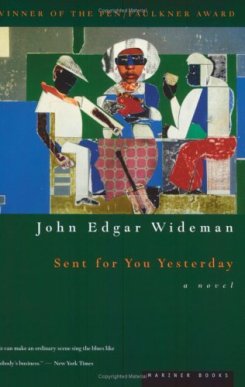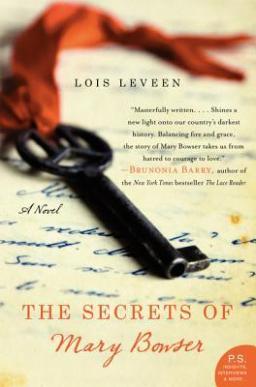
Category: Black History Month
February 2013, WWQ-BNR
What We Quote, But Never Read: February 2013
A monthly column that reviews the classics, the novels we scholars love to reference and quote, but never bother to read. Yes, those novels like Moby Dick, Les Miserables, and anything by Tolstoy. Yet, this column is not just about reviewing the classics, but relating them to our modern, youth culture, and proving how an old favorite is just as influential and relevant as anything fresh from the New York Times Bestseller’s list. With a new review per month, be reintroduced to the old school side of the literary spectrum and discover why it truly was the “best of times and the worst of times.”
THEIR EYES WERE WATCHING GOD by ZORA NEALE HURSTON
In celebration of Black History month, this column will focus on Zora Neale Hurston, one of the 20th century’s most influential authors–who paved the way for both female and African-American writers, her ground-breaking novel, and the unforgettable heroine who became the representation of perseverance in the face of prejudice.
Once upon a time (in the Jim Crow South) was a young girl named Janie Crawford, the granddaughter of a former slave, who from when she was very young understood that she thought differently from others when it came to who and what she was. Janie spends her childhood surrounded by all of the shadows and echoes of racism, yet she does not see it, and even when she does, she does not dwell on it. Hurston describes a scene where a young Janie sees herself photographed with the white children of the women her grandmother worked for: this is the first time she ever sees the physical difference between them. Her entire life before that moment, she believed that she was the same as the other children; consequently, her mindset never truly changes.
As well as being non-biased in the throes of a divided world, Janie is a dreamer. She spent most of her adolescence imagining she is under a tree or walking through a field, bathed entirely in the light of the sun. As a woman, especially a black woman, it was commonly thought that women did not have time for dreams and barely even had the mental capacity. This alone is a reason why Janie is such an interesting heroine: because she stands out by just being herself.
Janie’s real story begins when she leaves the constricting protection of her grandmother and becomes wife to her first husband, who is a simple farmer. Janie tries to blend into this role, tries to find the peace in the security of a simple marriage that her grandmother wanted so much for her, yet that wandering spirit that she had always known — and continues to lean on throughout the novel — leads her to the next chapter in her life in the form of Joe Starks.
He is enchanting in all of the typical ways: he’s charming, handsome, confidant. The particular thing about Joe Starks that attracts Janie is that he is moving places by his own will and charisma. Janie desperately wants to be on that fast-moving train, and he is more than eager to take her with him. She feels that with Joe she could have “flower dust and springtime sprinkled over everything.”
And that is exactly what she gets. Joe makes himself into an established man by investing time, money, and energy into an up-and-coming backroads town, and in turn makes Janie into the wife of an established man. Where Joe is becoming a prominent mayor of this otherwise overlooked town, Janie finds her ivory tower to be beautiful yet still a prison.
Hurston describes Janie during this time in her journey as, “a rut in the road. Plenty of life beneath the surface but it was kept beaten down by the wheels.” The many years she spends with Joe, the leader of a little town full of little people, she spends them like a guitar sitting on a shelf collecting dust, waiting to be played.
It is not until after Joe’s death that a rather skilled guitar picker called, “Tea Cake” shows up on Janie’s porch. Like Joe, Tea Cake is a hard worker and a charmer, light on his feet and quick with his wit. Unlike Joe, he does not want to make Janie into something she isn’t. He wants her, with all of her intuition, imagination, and tiresome habit of speaking her mind. He isn’t rich and many of his plans to become wealthy rest on quick jobs and high-risk gambling, but he always smiles when he looks at Janie and treats her with the utmost love.
It is then that Janie realizes that this was what her restless heart had always wanted that her grandmother could not see and she could not explain. A life where she would not have to fit into anyone’s perimeters, and still be happy and in love. Yet, by this point, Janie has become well accustomed to shifting roads and sporadic winds; therefore, when tragedy upsets her peace, she is not afraid to keep walking, grateful for the love she had known, and letting it guide her through to the next chapter.
Even with timeless characters and an eloquent, soulful writing style, what makes Hurston’s work an American classic is how she captures the entirety of the African-American experience, most notably by writing all of the dialogue in dialect. At first it’s frustrating, and unexpected, but the reader can eventually become truly immersed in these characters. This world that many remember yet are hesitant to speak of breathes through this choice in writing style, and she honors the history by writing it authentically. By not attempting to mask or distort anything, she allows the characters to have a complete voice.
Hurston addresses other major issues that revolve around the African-American journey in America as a race, not just from an individual’s perspective. The lasting controversy over skin color and hair — how dark is too dark, is long and curly hair more desired and why — things that are still discussed today are continuous themes in the novel. Hurston does not preach, instead lets these realistic issues be expressed through the characters’ perspectives without an author’s bias.
Their Eyes Were Watching God, even though it was written in the era of civil rights, is not a story entirely about civil rights. It is about the true African-American experience told through a character who saw things in her own way, who continues to be an emblem of independence and the never-ending trek towards happiness that we all struggle to make in our own lives.
About the Writer:
Avery Cunningham is from Jackson, Tennessee, and a sophomore at DePaul majoring in English with a Literary Concentration.
Celebrate Black History Month by Reading
I found inspiration from the website, Polymic‘s, “7 Works of Literature Worth Reading During Black History Month” to write this short piece. I thought it would be great to share more influential pieces of literature to try out this month in honoring black history. My undergraduate professor of John Carroll University, Dr. Chris Roark, who recently passed away, introduced me a diverse selection of African-American Literature. With his guidance, I gained confidence in my knowledge of Black literature and deepened my passion language as a form of self-expression–which is ever so prominent in African-American literature. This list includes some of the texts he illuminated to many English students.
Not that I have any authority over the subject matter, but these works are simply beautiful, creative pieces that I believe are worth a read!
 1. But Beautiful: A Book about Jazz, by Geoff Dyer
1. But Beautiful: A Book about Jazz, by Geoff Dyer
Interested in music–specifically jazz? This novel creatively illustrates the various lives of famous jazz musicians including, but not limited to: Charles Mingus, Theolonius Monk, Bud Powell, Chet Baker, and Ben Webster. In a “quasi-biographical” fashion, the story depicts nine diverse jazz musicians and how their personal backgrounds influenced their music. If you don’t like jazz, you might after reading this unique novel. I suggest putting on “Ruby, My Dear” by Thelonious Monk while reading, it will definitely add to the textual experience.
2. Fences, by August Wilson
This critically acclaimed play tackles the problem of black manhood in the 1950’s. Wilson’s Fences illuminates the problems of Black identity. The play’s main character, Troy, attempts to integrate his past experiences as a Negro Baseball player with the modern 1950’s lifestyle of his family. The reader is swept away through the raw, honest dialogue between the characters and the deep-rooted, effective symbolism. It’s a fast, worthwhile read for anyone interested in this topic!
 3. Sent for You Yesterday, by John Edgar Wideman
3. Sent for You Yesterday, by John Edgar Wideman
Wideman’s novel, published in 1983, surrounds the return of Albert Wilkes to his hometown and neighborhood of Homewood, set near Pittsburgh, PA. The novel depicts the life of various community members including the unique character, Brother Tate. Wideman examines the notion of Black self-image within historical and social contexts of the U.S., particularly in Homewood. Music and language are exhibited as forms of therapy for the characters in the novel. Wideman creates thoroughly constructed characters with which his readers can empathize and gain understanding.
4. Incidents in the Life of a Slave Girl, by Harriet Jacobs
Jacobs’s work was truly unique for its time: it was a story written by an African-American woman, but also slave (as the title suggests). Under a different pen name “Linda Brent,” Jacobs described the harsh realities of slavery through her experiences. The novel exposes the particular brutality that slave women faced as they were continuously raped, ripped apart from their children, and treated poorly from their female superiors. This work marked a change in literature; literature began exposing the immorality of the U.S. law.
 5. Song of Solomon, by Toni Morrison
5. Song of Solomon, by Toni Morrison
Of course I cannot leave out the talented, Toni Morrison from my list. While The Bluest Eye, Tar Baby, and Sula are great works, among her many others, this work is one of my favorites because of its magical realism. Morrison incorporates biblical allusions and magical realism, with emphasis on human flight. This style of writing draws in the reader to a heartbreaking tale surrounding the main character, Milkman Dead. The novel touches upon topics such as the impacts of racism, the abandonment of black women, and the significance of names. One of her more imaginative works, Song of Solomon, is a beautifully written novel where Morrison draws in the reader and arguably speaks through the narrator, “You wanna fly, you got to give up the shit that weighs you down.”
Each of these texts bring something new to African-American Literature, and there many more works out there to be read. You may have others you’d suggest to others, please feel free to comment on The Underground blog and share more!
–Emily Todd, Editor
Upcoming Event: Telling Secrets with Dr. Lois Leveen
 Telling Secrets: Mary Bowser, Race, Gender, and American History will be held on Monday, January 28th at 4pm in the Rosati Room 300, Richardson Library 2350 North Kenmore Ave. Join Dr. Lois Leveen for a discussion of the research behind The Secrets of Mary Bowser, her novel based on the true story of a former slave who became a Union spy in the Confederate White House.The book provides insight into the lives of free and enslaved blacks in urban, industrialized Richmond; into the thriving black community in antebellum Philadelphia; and into how blacks and whites worked together in the pro-Union underground that operated in Richmond during the war. The talk will also explore what it means to teach—and learn—African American history through fiction.
Telling Secrets: Mary Bowser, Race, Gender, and American History will be held on Monday, January 28th at 4pm in the Rosati Room 300, Richardson Library 2350 North Kenmore Ave. Join Dr. Lois Leveen for a discussion of the research behind The Secrets of Mary Bowser, her novel based on the true story of a former slave who became a Union spy in the Confederate White House.The book provides insight into the lives of free and enslaved blacks in urban, industrialized Richmond; into the thriving black community in antebellum Philadelphia; and into how blacks and whites worked together in the pro-Union underground that operated in Richmond during the war. The talk will also explore what it means to teach—and learn—African American history through fiction.
This is a free DePaul event is sponsored by The Department of Writing, Rhetoric, and Discourse, The African and Black Diaspora Studies Program, and The Office of Institutional Diversity and Equity.
Copies of the book are available at Barnes & Noble, Target, and most indie bookstores.
www.TheSecretsOfMaryBowser.com
Cookies for Black History Month Recap
 If you missed it, last Monday the English Department celebrated Black History Month by handing out quotes/bios on some great authors and poets. Oh yeah, each quote/bio came with a delicious, homemade FREE COOKIE (did I mention they were free?).
If you missed it, last Monday the English Department celebrated Black History Month by handing out quotes/bios on some great authors and poets. Oh yeah, each quote/bio came with a delicious, homemade FREE COOKIE (did I mention they were free?).
If you didn’t get a chance to sample the goods, I’ll let you in on what on what the cookiegrams said. The English Department wants to know if students are interested in rebooting the DePaul Literary Society. When the society was founded last year, the original goal was to bring undergraduate English students together for both social and cultural events. If you’re interested in joining, send an email to awoods8@depaul.edu
P.S. Women’s History Month is next month, and the English Department is looking for volunteers to help with its celebration. Interested? Same email, awoods8@depaul.edu.
Celebrate Black History Month!
“I’m for truth, no matter who tells it. I’m for justice, no matter who it is for or against. I’m a human being, first and foremost, and as such I’m for whoever and whatever benefits humanity as a whole.”
–Malcolm X
Do you have a little free time on Monday, February 20th? Email me, Angel Woods, at awoods8@depaul.edu to volunteer for an hour or two (From 11:00-3:00), and help the English Dept celebrate Black History Month.
Also, send me some excerpts (a few lines, like the quote above) from your favorite books, poems, plays, etc. by African-American authors.





